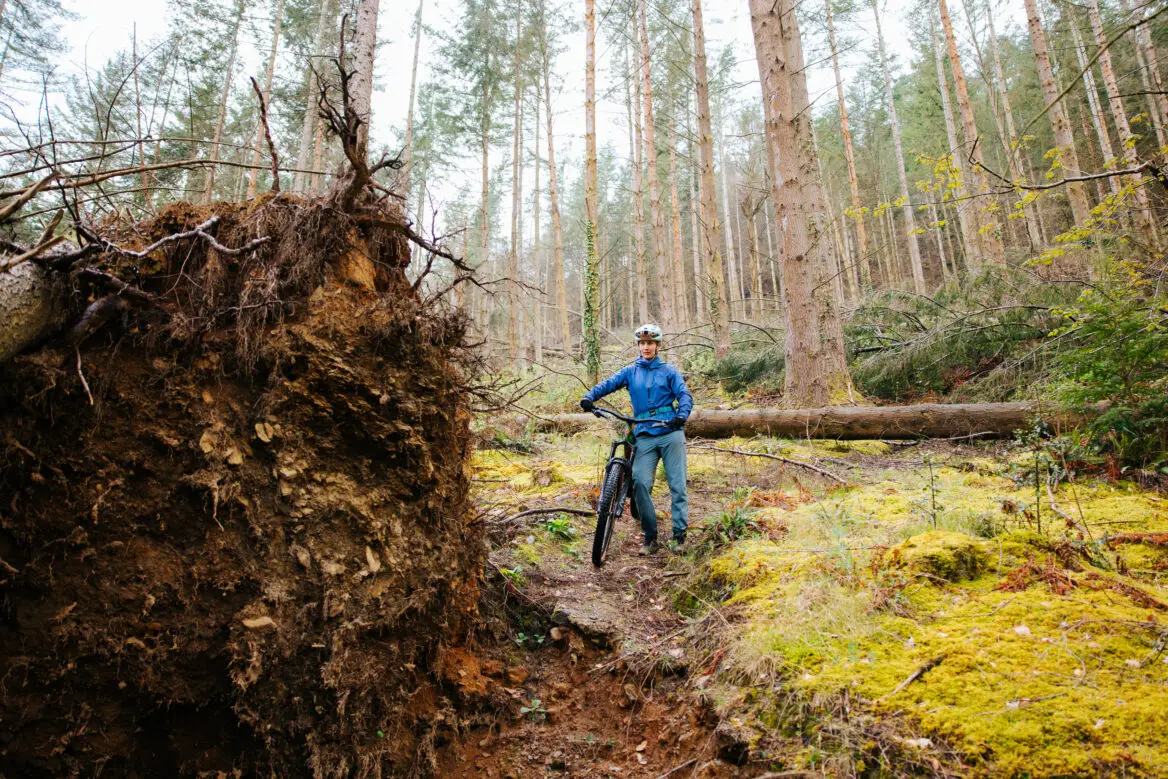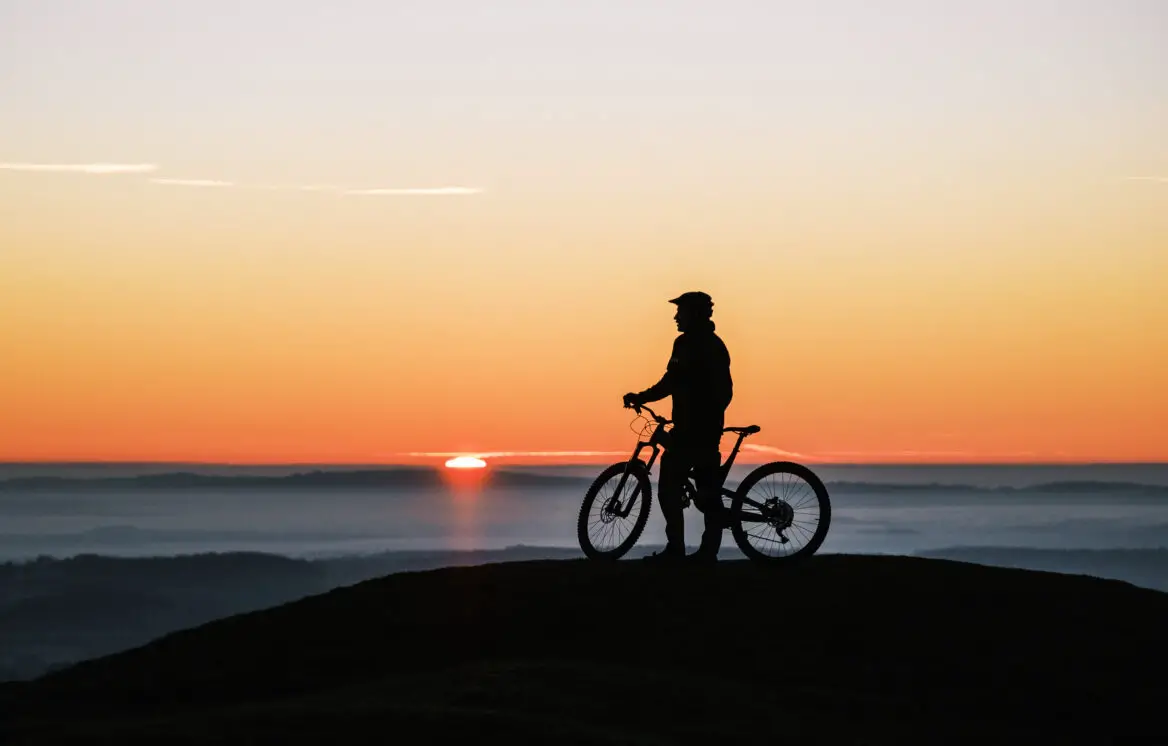Protect Our Winters is a climate change campaign group perhaps better known to snow sports enthusiasts, but with a year round remit to raise awareness of the impact of climate change. As the UCI Cycling World Championships gets underway in Scotland, it’s launching a new report that seeks to highlight how climate change is already affecting the bike industry.
There’s a huge thread on the Forum about worrying about climate change, and although there are some deniers in there, most of you seem concerned. Many of you have already experienced extensive trail closures following Storm Arwen – an extreme weather event seen as typical of the type we might expect to see more of if climate change continues. The current wet summer being experienced by the UK is attributed to the unusual positioning of the Jet Stream – another effect attributed to climate change and the melting of the polar ice sheets. Protect Our Winters (POW) hopes this report will draw the cycling industry and cyclists’ attentions to the impact climate change will have now and in the near future.
As well as highlighting the impacts, the report sees cycling as part of the solution – not just as a form of green transport, but also as a means to connect with our environment and appreciate it. If you care about something, you’re more likely to look after it, right? The report also sets out suggested courses of action for the bike industry, its governing bodies, and us as individuals, and recognises the need for government action, and invites you to help POW lobby for political and policy change.
Here’s the press release:
Climate change is threatening cycling as we know it, finds new report ahead of UCI Cycling World Championships
Cycling is at risk from the impacts of climate change as extreme weather threatens access to trails, the safety of events, and the overall health and enjoyment of participants. Downhill From Here: How Climate Change threatens cycling as we know it, the latest report from Protect Our Winters UK, hears from athletes experiencing the negative impacts first-hand and explains what will happen as climate change continues.
With the UCI cycling championships just around the corner, all eyes will be on the UK’s world-class biking trails. But those trails, and the viability of sports and events that rely on them, are more at risk than ever before.

Former Downhill World Champion Manon Carpenter has “become increasingly aware of the impact extreme weather is having on the environments we depend on for mountain biking. Drought, high temperatures and forest fires are affecting trails or riders directly. These are events happening now, let alone into the future where we can expect increasing severity and unpredictability of these events.”
Long distance cyclist and broadcaster Mark Beaumont has ‘seen first-hand over the last 20 years the effects of our changing climate, from desertification, rising sea levels, human migration and more. Witnessing such global issues first hand informs what I spend my time doing now, to ensure our planet remains a green and pleasant land to explore by bicycle for generations to come.’
Professional Enduro Rider Anita Gehrig said “Last summer there was a massive rockslide in our area. A friend of ours was almost hit by a massive boulder. We know things like that can happen in the Alps, of course, but you don’t expect it right in your area and with your friend involved. It occurs more often, I would say, with the permafrost going away. It was quite shocking.”

The report finds threats to access, health, and experience:
- Extreme weather, wetter winters, melting roads, wildfires, flooding, and erosion all threaten bikers’ access to the trails.
- Rising temperatures and decreased air quality risk the spread of vector borne disease, while reduced access may have an impact on participants’ overall mental health and wellbeing.
- Cycling events are under increased strain due to unpredictable weather, compromising participation, enjoyment, and their ability to operate at all.
This year, Red Bull Hardline, one of the world’s toughest downhill mountain bike races that was due to take place in July in Wales, was cancelled due to intense rain alongside heavy winds. Meanwhile, the UK’s shift towards a hotter and overall drier summer, has meant that important trail surfacing work has been difficult to complete – as in Glentress, Scotland, where the Masterplan trails are closed for public use until September.
In the future practically every event could be at increased risk of cancellation. Rider fairness and safety are set to be impacted – inability to keep cool impacts decision making which could cause more injuries, as well as direct health risks such as heart attacks. This puts the cycling industry of £5.4bn contributed to the economy and 64,000 jobs at risk in the UK, and a $54 billion cycling market globally.
We need to act. To learn more about climate impacts and other actions, visit: https://protectourwinters.uk/take-action-for-individuals Sign up to POW UK’s newsletter: https://protectourwinters.uk/sign-up-to-newsletter


You must be logged in to reply to this topic.